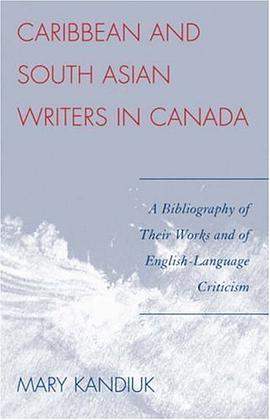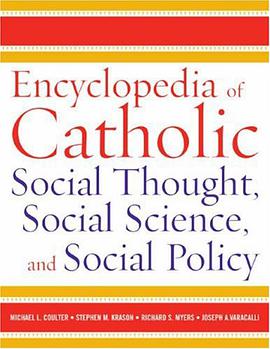

具体描述
In this pioneering, erudite study of a pivotal era in the arts, Walter Frisch examines music and its relationship to early modernism in the Austro-German sphere. Seeking to explore the period on its own terms, Frisch questions the common assumption that works created from the later 1870s through World War I were transitional between late romanticism and high modernism. Drawing on a wide range of examples across different media, he establishes a cultural and intellectual context for late Richard Wagner, Richard Strauss, Gustav Mahler, and Arnold Schoenberg, as well as their less familiar contemporaries Eugen d'Albert, Hans Pfitzner, Max Reger, Max von Schillings, and Franz Schreker. Frisch explores 'ambivalent' modernism in the last quarter of the nineteenth century as reflected in the attitudes of, and relationship between, Nietzsche and Wagner. He goes on to examine how naturalism, the first self-conscious movement of German modernism, intersected with musical values and practices of the day. He proposes convergences between music and the visual arts in the works of Brahms, Max Klinger, Schoenberg, and Kandinsky. Frisch also explains how, near the turn of the century, composers drew inspiration and techniques from music of the past - the Renaissance, Bach, Mozart, and Wagner. Finally, he demonstrates how irony became a key strategy in the novels and novellas of Thomas Mann, the symphonies of Mahler, and the operas of Strauss and Hofmannsthal.
作者简介
目录信息
读后感
评分
评分
评分
评分
用户评价
“German Modernism”这本书,给我最直观的感受是其叙事的宏大与细腻并存。作者就像一位经验丰富的导演,能够在大历史的背景下,捕捉到那些最动人的细节。我被书中对20世纪初德国社会快速变迁的描绘所深深吸引,工业化的进程、城市化的扩张、社会阶层的变动,这些宏观的社会变革如何转化为艺术家的创作灵感,又如何影响了他们的作品主题和表现形式,作者都进行了深入浅出的阐述。比如,书中对柏林这个移民城市在现代主义艺术发展中的特殊地位的分析,让我看到了不同文化碰撞出的火花,以及这种碰撞如何催生出前所未有的艺术形式。我尤其喜欢书中对音乐、戏剧等表演艺术的深入探讨。例如,施特劳斯歌剧的创新,或是布莱希特戏剧的“间离效果”,这些都让我看到了德国现代主义在艺术形式上的大胆突破。作者并没有简单地描述这些突破,而是分析了其背后的社会动因和哲学思考。读这本书,让我感受到的是一种知识的盛宴,它不仅仅是关于艺术的,更是关于历史、关于社会、关于人性的。我常常在阅读时,会不自觉地停下来,去思考书中所描绘的场景,去感受那个时代的气息。
评分“German Modernism”这本书最让我印象深刻的地方,是它对于“个体”在宏大历史洪流中的挣扎与选择的细腻描绘。在许多关于艺术史的著作中,我们看到的往往是宏大的运动、理念的演变,而这本书却在宏大叙事之外,为我们呈现了许多艺术家个体在那个时代所面临的复杂处境。作者没有简单地将艺术家塑造成不食人间烟火的先知,而是深入挖掘了他们在面对社会动荡、经济困境、政治压力时的真实情感和矛盾心理。比如,书中对一些艺术家如何在中立与立场之间摇摆,如何在创作自由与个人生存之间权衡的描述,都让我感到非常真实和 relatable。我尤其被书中对几位艺术家个人经历的深入挖掘所打动,他们如何从早期的艺术探索者,一步步被卷入时代的洪流,又如何在这个过程中保持或改变他们的艺术初衷。这种对个体命运与时代变迁之间相互作用的关注,让“德国现代主义”这个概念不再冰冷,而是充满了人性的温度。我常常在阅读中,会不由自主地将自己代入其中,想象如果在那个时代,我会做出怎样的选择。这本书的意义,不仅仅在于它提供了关于艺术史的知识,更在于它引发了我对人性、对选择、对时代与个体关系的深刻反思。这是一种超越学术的、触及灵魂的阅读体验。
评分“German Modernism”这本书,给我带来的最大启发,在于它对“批判性”的强调。作者并没有将德国现代主义简单地描绘成一个艺术的黄金时代,而是深入剖析了其内部存在的矛盾、冲突和局限性。我尤其赞赏书中对“表现主义”的批判性审视。虽然表现主义以其强烈的情感宣泄和对社会现实的尖锐批判而闻名,但作者也指出,在某些情况下,表现主义的个人主义和主观性,也可能导致其脱离社会现实,或者被政治力量所利用。这种辩证的视角,让我看到了艺术创作的复杂性。同时,书中对“新艺术运动”(Jugendstil)的探讨,也让我看到了德国现代主义在吸收外来影响的同时,如何形成自身的特色。作者并没有将新艺术运动简单地视为一种装饰风格,而是深入挖掘了其背后的哲学理念和对自然、生命的热爱。这种对不同艺术运动的细致辨析,让我对德国现代主义有了更全面、更深入的理解。这本书的价值,在于它提供了一种批判性的思维方式,它鼓励读者不仅仅是接受信息,更是去质疑、去反思、去独立判断。这种思维方式,对于任何一个渴望深入理解艺术和历史的人来说,都具有重要的意义。
评分我一直对20世纪初欧洲艺术和文化思潮有着浓厚的兴趣,而“German Modernism”这本书的出现,无疑填补了我在此领域阅读经验中的一个重要空白。我毫不夸张地说,这本书不仅仅是一本关于德国现代主义的学术著作,更像是一扇通往那个动荡而富有创造力的时代的窗口。从翻开第一页起,我就被作者深邃的洞察力和严谨的论证所吸引。他没有简单地罗列艺术家、作品和运动,而是试图深入挖掘德国现代主义的根源,探讨其与社会、政治、经济以及哲学思想之间错综复杂的关系。比如,书中对魏玛共和国时期社会转型期的描绘,以及它如何催生了那些充满实验性和反叛精神的艺术形式,让我对那个时代的社会背景有了更深刻的理解。作者对建筑、绘画、文学、电影等多个艺术门类的交叉分析,更是让人惊叹,他揭示了不同艺术形式之间是如何相互影响、相互启发的,共同构成了“德国现代主义”这个庞大而多元的概念。我尤其欣赏书中对一些边缘化或被低估的艺术家和运动的关注,这使得我对德国现代主义的认知不再局限于几个耳熟能详的名字,而是看到了一个更为丰富和立体的图景。书中的语言流畅而富有感染力,即使是复杂的理论阐述,也被作者以一种易于理解且引人入胜的方式呈现出来。我能够想象,作者在写作过程中倾注了大量的心血,对史料的考证,对学术观点的梳理,都力求做到尽善尽美。读完这本书,我感觉自己不仅仅是了解了德国现代主义,更是与那个时代的思想家、艺术家进行了一场深刻的对话,他们的困惑、他们的挣扎、他们的理想,都仿佛跃然纸上,触动着我的心灵。这是一种非常宝贵的阅读体验,让我对艺术史以及人类文明的发展有了更宏大的视角。
评分不得不说,“German Modernism”这本书在某种程度上颠覆了我之前对德国现代主义的一些刻板印象。在阅读之前,我脑海中浮现的更多是表现主义的强烈情感宣泄,或是包豪斯的理性主义设计。然而,作者却带领我走进了一个更为广阔的艺术天地,他揭示了德国现代主义内部存在的巨大张力与多元性。书中对“新客观性”(Neue Sachlichkeit)运动的深入剖析,就让我看到了在经历了一战的创伤后,德国艺术家如何试图回归现实,以一种冷峻、客观的视角去审视社会现实,这与我之前理解的“现代主义”的激进和超脱似乎有所不同,却更加贴近那个时代人民的真实心境。作者对歌德学院、艺术学院等教育机构在推广现代主义理念中的作用的讨论,也提供了新的视角。这些机构如何平衡传统与创新,如何在社会转型期发挥育人功能,这些细节的呈现,使得德国现代主义的发生发展过程显得更为具体和可触碰。我尤其喜欢书中对不同城市,如柏林、慕黑、德累斯顿等,在德国现代主义发展中所扮演的不同角色的对比分析。每个城市都有其独特的文化基因和历史机遇,从而孕育出不同风格的现代主义艺术。这种地域性的视角,让我对德国现代主义的理解更加立体和深入。作者的文字功底也相当扎实,他能够将抽象的艺术理论与具体的作品案例巧妙地结合,使得论述既有深度又不失趣味性。有时,我会因为书中对某一作品的细致解读而产生强烈的共鸣,仿佛我本人也置身于那个时代的画廊或剧院之中,亲身感受着艺术的力量。这本书无疑是我书架上的一颗璀璨明珠,它不仅丰富了我的知识储备,更点燃了我对艺术和历史的探索热情。
评分“German Modernism”这本书,就像一个精密的解剖刀,将德国现代主义这个庞大而复杂的现象,层层剥开,展现在读者面前。作者的视角极其独特,他没有拘泥于艺术作品的风格和技巧,而是将目光投向了艺术背后的社会结构、思想渊源以及文化脉络。我尤其赞赏书中对“精神分析”在德国现代主义艺术中的影响的探讨。弗洛伊德的理论如何渗透到文学、绘画甚至电影中,揭示了潜意识、梦境、性压抑等主题,这让我看到了那个时代艺术家们对人类内心世界的深度探索。作者不仅仅是介绍理论,更是通过具体的作品案例,生动地展示了这些理论是如何被艺术化、被具象化的。这种将理论与实践相结合的论述方式,使得即便是复杂的精神分析理论,也能在读者的脑海中形成清晰的画面。此外,书中对“功能主义”在建筑和设计领域的影响的分析,也让我看到了德国现代主义在追求形式美感的同时,如何强调实用性和社会责任。包豪斯的设计理念,不仅仅是关于美观,更是关于如何通过设计来改善社会生活,提高大众的生活品质。这种对艺术的社会功用性的关注,在我看来,是德国现代主义最宝贵的遗产之一。这本书的深度和广度,都远远超出了我的预期,让我对那个时代的艺术和思想有了全新的认识。
评分“German Modernism”这本书,简直是一次思想的探险,它带领我穿越了20世纪初德国那片充满变革与创新的土壤。作者的文字功底极深厚,他能够将一些晦涩的艺术理论和复杂的历史事件,以一种流畅而引人入胜的方式呈现出来。我印象特别深刻的是书中对“表现主义”电影的分析,卡尔·迈耶的《卡里加里博士的小屋》如何通过扭曲的布景、夸张的表演来反映那个时代人们内心的恐惧和焦虑,让我对电影作为一种艺术形式的力量有了全新的认识。作者并没有止步于电影本身,而是将它置于更广阔的社会文化背景下进行考察,分析了战争创伤、社会动荡如何催生了这种充满阴郁和不安的艺术风格。此外,书中对“新客观性”运动的深入阐述,也让我看到了德国现代主义在经历了一战的巨大冲击后,如何试图回归现实,以一种冷静、客观的视角去审视社会。这种风格的转变,本身就蕴含着深刻的时代意义。作者的论述极具条理性,他能够将不同艺术门类、不同时期、不同思想流派之间的联系清晰地梳理出来,构建起一个庞大的德国现代主义知识体系。读这本书,我感觉自己不仅仅是在获取知识,更是在进行一场心灵的洗礼,它让我对艺术、对历史、对人性有了更深刻的理解。
评分坦白说,“German Modernism”这本书的内容之丰富,让我几度惊叹。我原本以为它会聚焦于几个核心的艺术运动,但事实远非如此。作者以一种近乎百科全书式的广博视野,将德国现代主义的触角延伸到了各个领域,从建筑的实用主义美学,到戏剧的先锋实验,再到电影的叙事创新,无一不涵盖其中。我特别被书中对“包豪斯”的全面解读所吸引,不仅仅是关于其设计理念和标志性作品,更深入地探讨了它在教育模式、社会理想以及最终走向衰落的复杂原因。作者并没有回避包豪斯理想与现实之间的冲突,以及它在不同政治环境下所经历的演变。这种多维度的考察,让我对这个在设计史上具有里程碑意义的机构有了更深刻的理解。此外,书中对音乐、文学、摄影等领域的现代主义探索的介绍,也让我大开眼界。我从未想过,在那个时期,德国的音乐家是如何打破传统的调性束缚,创造出十二音体系;作家们又是如何通过意识流、碎片化叙事等手法来反映现代人的精神困境。这种跨领域的梳理,使得“德国现代主义”不再是一个孤立的艺术标签,而是构成了一个相互关联、充满活力的文化生态系统。我常常在阅读时,感觉自己仿佛置身于一个巨大的知识宝库中,每翻开一页,都能发现新的惊喜和启发。这本书的价值,在于它提供了一个宏大而精细的框架,让读者能够全面而深入地理解德国现代主义的全貌。
评分“German Modernism”这本书给我带来的最大冲击,在于它对艺术与社会权力结构之间关系的深刻揭示。我一直认为,艺术是纯粹的精神创造,然而作者通过大量的史料和翔实的分析,让我认识到,在德国现代主义的语境下,艺术与政治、经济、意识形态是多么紧密地交织在一起。书中对魏玛共和国时期,国家、资本家以及不同政治派别如何试图利用或压制现代主义艺术的探讨,让我对艺术的社会功能有了全新的认识。例如,艺术家如何在一个日益商业化和政治化的环境中寻找创作的自由,他们如何通过作品表达对社会不公的批判,或者如何被巧妙地收编进官方的文化宣传机器,这些都让我深思。作者对于“前卫艺术”(Avant-garde)概念的辩证分析,更是让我看到了那个时代艺术家们在追求艺术革命的同时,也面临着如何与社会大众沟通、如何获得生存空间的双重挑战。书中对一些曾被认为是“颓废艺术”的作品进行重新评价,并揭示其背后蕴含的深刻的人文关怀和对社会问题的反思,更是令人感动。这种勇气和探索精神,在今天依然具有重要的启示意义。我尤其赞赏作者在处理复杂历史事件时的客观和中立,他没有简单地将任何一方描绘成绝对的对立面,而是试图展现那个时代不同力量之间的博弈和妥协。读这本书,让我感受到的是一种知识的重量和思想的深度,它不仅仅是关于艺术史的知识,更是关于人类在特定历史条件下如何思考、如何创造、如何生存的智慧结晶。
评分“German Modernism”这本书,就像一位博学的向导,引领我深入探索20世纪初德国那个波澜壮阔的艺术时代。作者的文字如行云流水,又带着一丝严谨的学究气,让我既能沉浸在艺术的魅力中,又能保持清晰的思考。我最先被吸引的是书中关于“表现主义”文学的章节,那些关于城市异化、个体孤独、精神焦虑的描写,让我深切感受到了那个时代知识分子内心的挣扎。作者并没有简单地罗列作品,而是深入分析了这些作品如何反映了当时德国社会的现实问题,以及艺术家们如何通过文学语言来表达他们的不满和反思。接着,我对书中对“魏玛艺术”的精彩阐述印象深刻。魏玛共和国时期,虽然社会动荡,政治不稳定,但艺术创作却异常活跃,各种实验性的艺术形式层出不穷。作者通过对这个时期戏剧、音乐、绘画等多个艺术门类的梳理,展现了那个时代艺术的丰富性、多元性以及其蕴含的巨大能量。我特别欣赏作者在处理不同艺术运动之间的关系时所展现出的敏锐洞察力,他能够清晰地勾勒出它们之间的传承与对抗,以及它们是如何共同构成了“德国现代主义”这个复杂的概念。这本书的价值,在于它提供了一个全面而深入的视角,让读者能够不仅仅是了解德国现代主义的表面,更能触及其深层的精神内核,理解那个时代的艺术是如何与社会、与人性紧密相连的。
评分 评分 评分 评分 评分相关图书
本站所有内容均为互联网搜索引擎提供的公开搜索信息,本站不存储任何数据与内容,任何内容与数据均与本站无关,如有需要请联系相关搜索引擎包括但不限于百度,google,bing,sogou 等
© 2026 book.wenda123.org All Rights Reserved. 图书目录大全 版权所有




















